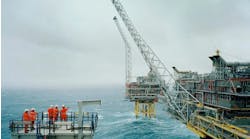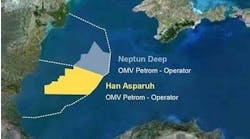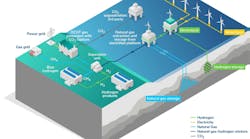Analysis: Europe facing unprecedented risks to its energy supply this winter
Offshore staff
PARIS – Europe faces “unprecedented risks” to its natural gas supplies this winter after Russia cut off most pipeline shipments, the International Energy Agency said Monday, warning that European nations could wind up competing with Asia for already scarce and expensive liquid gas that comes by ship.
The Paris-based IEA said in its quarterly gas report that the European Union’s 27 countries would need to reduce natural gas use by 13% over the winter in case of a complete Russian cutoff amid the war in Ukraine. Much of that cutback would have to come from consumer behavior such as turning down thermostats by one degree and adjusting boiler temperatures, as well as industrial and utility conservation, the group said.
The EU on Friday agreed to mandate a reduction in electricity consumption by at least 5% during peak price hours, according to a recent Associated Press report. The report also noted that “just a trickle” of Russian gas is still arriving in pipelines through Ukraine to Slovakia and across the Black Sea through Turkey to Bulgaria.
Another hazard highlighted by the IEA report was a late winter cold snap, which would be particularly challenging because underground gas reserves flow more slowly at the end of the season due to less gas and lower pressure in the storage caverns. The EU has already filled gas storage to 88%, ahead of its goal of 80% before winter. The IEA assumed 90% would be needed in its Russian gas cutoff scenario.
Businesses in Europe have already cut back natural gas use, sometimes simply by abandoning energy-intensive activities such as making steel and fertilizer, while smaller businesses like bakeries are feeling a severe crimp in their costs.
High prices for natural gas, which is used for heating homes, generating electricity, and a host of industrial processes, are fueling record consumer inflation of 10% in the 19 EU nations that use the shared euro currency. The high energy prices are sapping so much consumer purchasing power that economists predict a recession at the end of this year and the beginning of next.
European governments and utilities have made up much of the Russian shortfall by purchasing expensive supplies of liquefied natural gas, or LNG, that comes by ship from countries such as the US and Qatar and by obtaining increased pipeline supplies from Norway and Azerbaijan.
The goal is to prevent storage levels from falling so far that governments must ration gas to businesses. Gas storage must remain above 33% for a secure winter, according to the IEA, while levels below that risk shortages if there’s a late cold snap.
Lower levels also would make it harder for Europe to refill storage next summer, while higher reserves from conservation would help lower extremely high energy prices.
French Prime Minister Élisabeth Borne on Monday played down concerns of gas shortages, saying her country has diversified its supplies and stocked up “to the maximum,” according to the AP report.
“We are ready to face this winter,” she reportedly told France’s lower house of parliament. Reiterating her government’s drive for energy saving, Borne added there are no risks of energy cuts in coming months “if everyone plays their part.”
European leaders say the cutback in Russian gas is energy blackmail aimed at pressuring governments over their support for Ukraine and sanctions against Moscow.
Since Russia halted gas flows this month through the Nord Stream 1 pipeline running under the Baltic Sea to Germany, it and the parallel Nord Stream 2 — built but never operated after Germany refused to certify it — were damaged in underwater explosions that European governments say are sabotage.
Demand for liquefied gas has driven up prices and tightened supply to the extent that poorer countries in Asia cannot afford it. Bangladesh is experiencing widespread power blackouts, while Pakistan faces rolling blackouts and has introduced reduced working hours so shops and factories can save electricity.
“Inter-regional competition in LNG procurement may create further tensions, as additional European needs would put more pressure on other buyers, especially in Asia, and conversely cold spells in Northeast Asia could limit Europe’s access to LNG,” the agency said.
The gas crisis in Europe has also deprived Asian countries of the limited number of floating regasification vessels, which were expected to play a major role in LNG imports in Southeast Asia. Europe has secured 12 of the vessels and plans another nine.
10.04.2022



